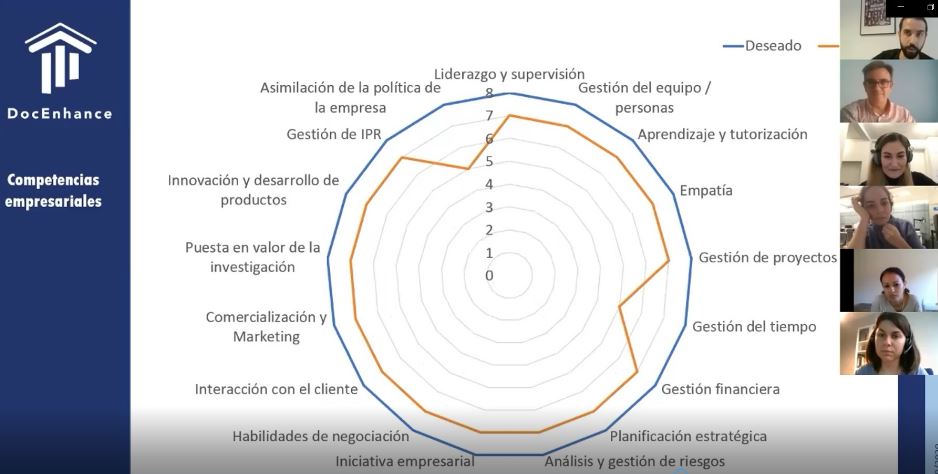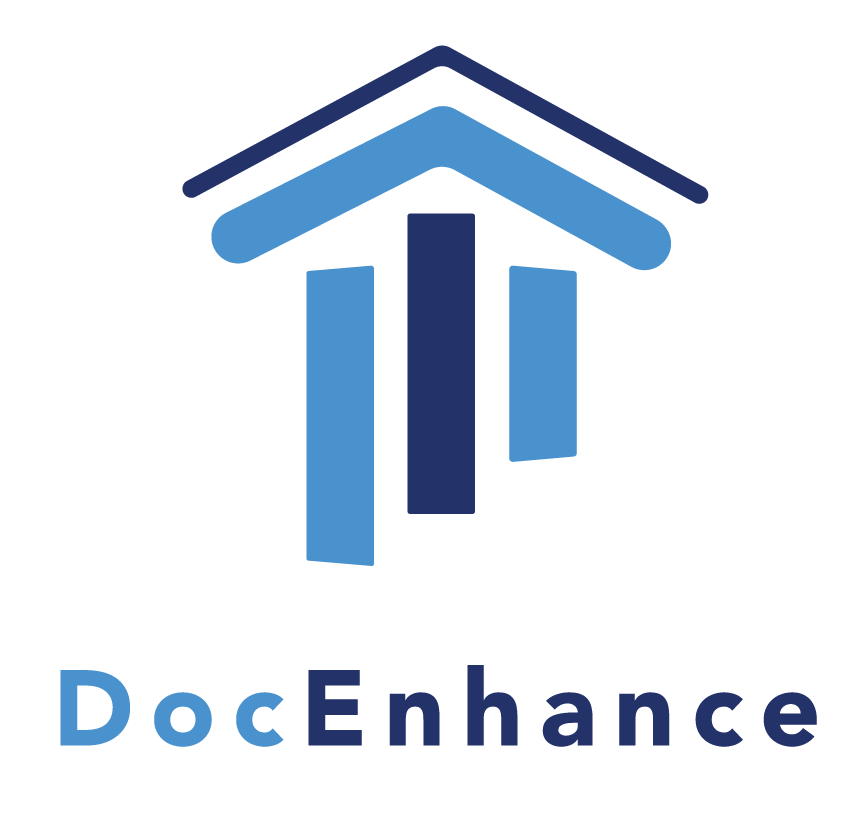Regional stakeholder workshop in Spain
27 October and 3 November, online

This third regional stakeholder workshop, located in Spain and focused on technological and industrial stakeholders from the non-academic sector, was organised by Fundación Universidad-Empresa and University of Alcala.
Objectives
- Discuss specifics of the Spanish technological and industrial sectors focused on the employability of doctoral graduates.
- Identify transferable skills essential for working in the industrial and technological sectors.
- Prepare a final list and ranking of transferable skills identified as crucial for working in the technological and industrial sectors.
Though groups were limited to a maximum of 10 people per workshop in order to ensure dynamic discussion, participants came from a wide spectrum of industrial and technological companiess: Biotech, Chemistry, ITC, Digital Services, Pharma, Aerospace, Photonics, Logistics,…
Participant professional profiles were also very diverse: founders/co-founders or staff at innovative technological and industrial spinoffs/startups (5); talent development and HR functions at large multinational companies (4); project management at large multinational firms (2); researchers at a university or large multinational firms (2); industrial doctorate candidate (1).
Essential transferable skills in industrial and technological sectors
After presentating the project, the list of skills identified by the DocEnhance project were described and introduced to the participants, categorised in 4 groups: Personal, Social, Acquired and Business Skills. Each of these was largely discussed, giving the floor to the participants.
Personal Skills
Participants agreed that two key skills are needed in the current scenario at industrial and technological companies: adaptation to change, change management and resilience. Other important skills are complex problem resolution, decision making, negotiation capacity, emotional intelligence and empathy. Given the current difficulties entailed in finding a placement within academia, self-management skills related to professional expectations are vital for early researchers. It is worth noting that almost everyone agreed that these personal skills are not easy to include in doctoral curricula and that they are easier to acquire through in-company training.
Social skills
Communication skills stood out as the most valuable ones, including a high level of writing (preparation of quality reports and documents) and oral (presentations / speaking in public) skills. Many participants pointed out that they would hire someone able to sell a product/project in a convenient way. Participants also focused on the need for more experience in team working and conflict resolution, pointing out that early researchers working on their PhD thesis usually lack real team interaction (with the exception of those in industrial doctorate programs). They are rarely accustomed to working in teams and academia, in general, does not promote teamwork among doctoral candidates. Good networking skills were also mentioned as relevant.
Acquired skills
Participants perceived that foreign language (mainly English) skills are always required in international companies. Additionally, several participants referred to self-branding as an important skill that should be fostered in early researchers as an essential element of personal career management. In this same line of thought, several participants mentioned the need to foster self-promotion skills (i.e. PhD candidates and graduates sometimes have difficulties in identifying their strong points and the transversal skills they possess, they do not know how to “sell themselves”, the so-called, personal branding should be improved).
Business skills
Three skills were repeatedly mentioned when discussing skill gaps in the transition process from academia to business:
- Integration in company culture and policies:
PhDs/Early researchers lack a general knowledge of business culture and how companies operate (limited resources, different communication style, importance of interpersonal relations and team work, multidisciplinarity, people management, conflict resolution, client interaction, day-by-day company work-life, etc.) Several participants suggested that company stays or internships (in lieu of or in addition to university research stays) would allow doctoral candidates and graduates to “soak up” business culture, and thus contribute to close this skills gap. The PhD mindset is not oriented to economic viability and results.
- Project and time management: early researchers are accustomed to look for perfection in their work and when they begin to work in a company environment they tend to spend more time than allotted in completing given tasks. In a company environment, the “best” solution is sometimes not the “optimal” solution (“perfect is the enemy of good”); there is often not enough time for “perfection”, and decisions have to be taken quickly. Strict project (budget) and time (deadlines) management is essential in the non-academic sector, but is not usually part of a doctoral graduates’ mindset.
- leadership, people supervision and political savvy.
Others skills such as innovation and entrepreneurship were mentioned to a lesser degree, although some participants pointed out that academia does not foster the entrepreneurial mindset among PhD candidates and graduates. Lastly, marketing, enhancing the value of research or product development and IPR management were not considered as relevant skills for doctoral graduates, as these issues depend on company characteristics and policies (most firms have their own specific departments for these tasks, or they resort to external consulting firms).
Related posts
- DocEnhance Final EventDocEnhance's final event
- Join the CEN Workshop on ‘Good practice for implementation of a career-tracking survey for post-graduates!The purpose of this workshop is to create consensus-based guidelines … Read more
- DocEnhance Final EventRegister to DocEnhance's final event!
- DocEnhance Annual Meeting 202221 June 2022, DocEnhance partners had the pleasure to meet … Read more
- DocEnhance Stakeholder Validation WorkshopWhen: 22 June 2022, 9:00 – 11:00 CET Where: University of … Read more
